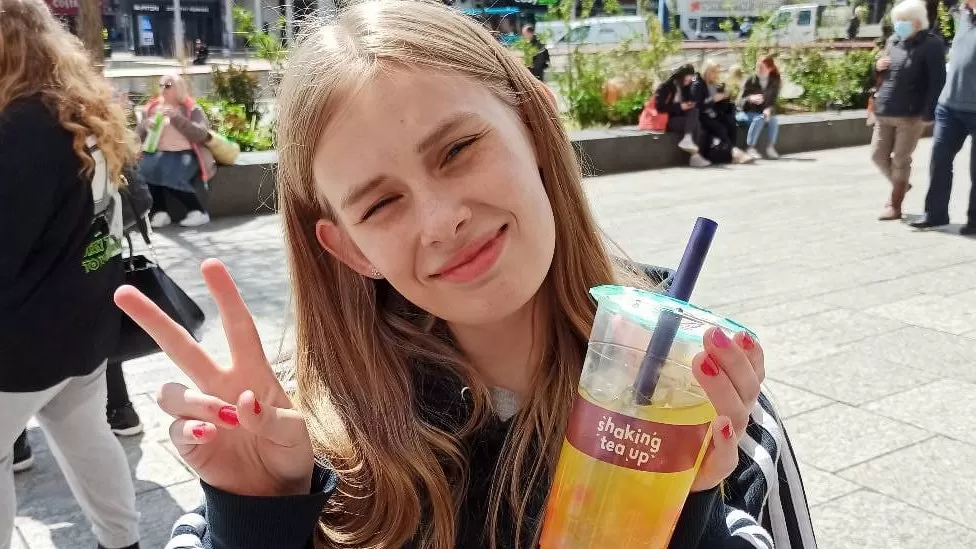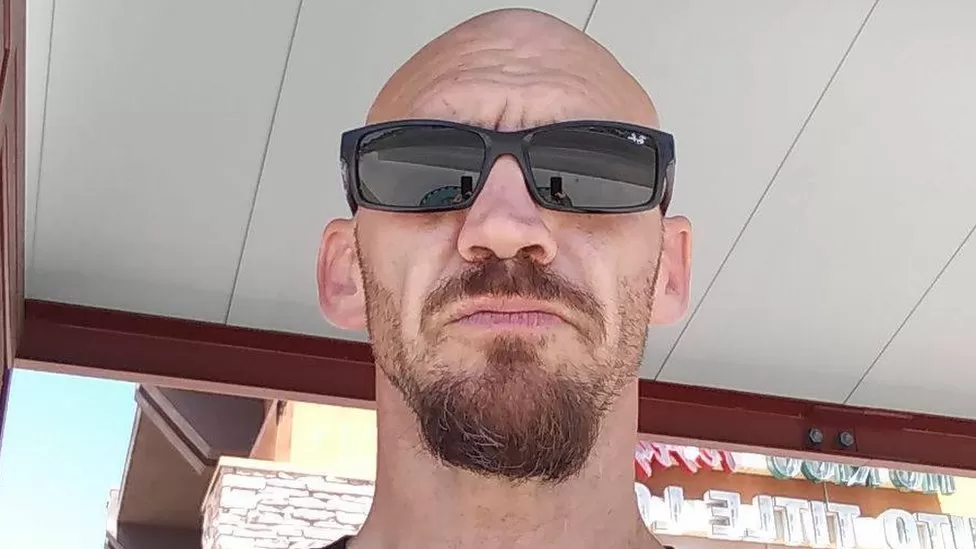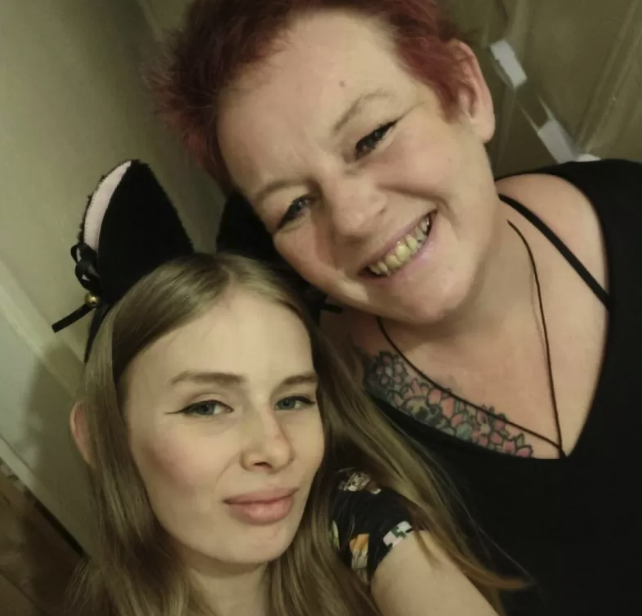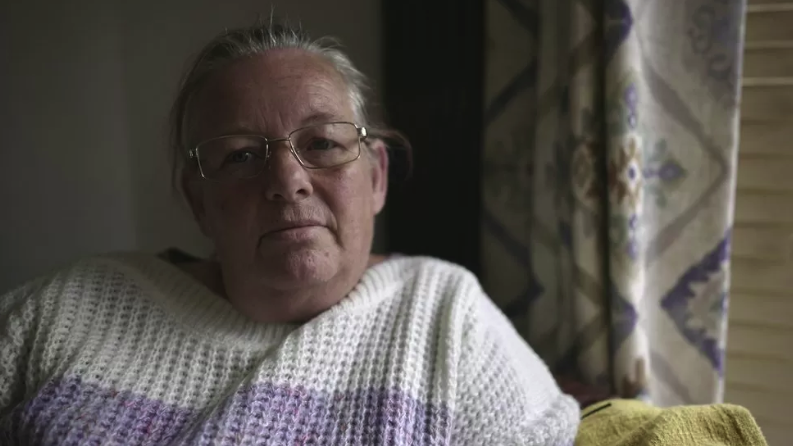UK: Rhianan Rudd – MI5 had evidence teen terror suspect was exploited

By Daniel De Simone and Ali Winston From BBC News
Evidence showing the grooming and sexual exploitation of a schoolgirl was handed to MI5 months before she was charged with terrorism offences, a BBC investigation has found.
The prosecution of Rhianan Rudd was later dropped after the Home Office concluded she was a victim of exploitation.
Rhianan, who was 15 when she became the youngest girl charged with terror offences in the UK, took her own life in a children’s home in May 2022.
Her mother says investigators should have treated her daughter “as a victim rather than a terrorist”.
The case raises questions about how the UK deals with the problem of children involved in extremism, according to the senior lawyer responsible for reviewing terror laws.

At the age of 14, Rhianan Rudd became absorbed by right-wing extremism. Her mother Emily Carter remembers her as a “lovely girl” who adored horses. But then she began to express racist and antisemitic beliefs, Ms Carter says.
“If you didn’t have blonde hair and blue eyes – Aryan as they say – she didn’t want to know you, you were an inferior race, you shouldn’t have been alive,” her mother recalls.
She says her daughter was taking in extreme views “like a sponge”. “She was changing herself, that’s not Rhianan,” she says. “She was a child who fixated on things.”
Rhianan, who was born in Essex and later moved to Derbyshire, had difficulty building relationships and “struggled in life”, Ms Carter says. She was also diagnosed as autistic.
Rhianan had run away from home in the past and there was social service involvement with the family. Her mother acknowledges she made mistakes but “always tried to do her best”.
By September 2020, Ms Carter had become so concerned by Rhianan’s mindset that she referred her to Prevent, the government de-radicalisation scheme, after she admitted downloading a bomb-making manual.

The 14-year-old was talking to American extremist Christopher Cook online
Within a month, Rhianan was arrested by counter-terror detectives and her brief engagement with Prevent had to end. She was questioned, bailed as a terrorism suspect, and was no longer able to attend school.
For some time, she had been talking to older people online, including American Christopher Cook, who promoted a terrorist form of neo-Nazism, and formed a combat cell to carry out attacks.
Evidence shows the then-partner of Rhianan’s mother also had an influence. Ms Carter says this was kept from her.
The partner, American Dax Mallaburn, had been part of a white supremacist prison gang in the US. He met Rhianan’s mother via a pen pal system for prisoners.
Before Rhianan was arrested, Mallaburn’s relationship with her mother had broken down and he returned to the US. But the BBC has discovered that Cook and Mallaburn had been in contact, with Cook telling him to teach Rhianan the “right way”.
During police interviews, Rhianan described being coerced and groomed, including sexually, and having sent explicit images of herself to Cook. The abuse she described would eventually result in a formal government finding of exploitation.
Under modern slavery laws, certain public bodies like the police are required to notify the Home Office about any potential victims of exploitation they encounter.
However, in the months before Rhianan was charged, none of the organisations involved referred her to the specialist Home Office unit that considers such cases.
This was not due to a lack of information.
The BBC has found that, around the time of Rhianan’s arrest, MI5 received evidence showing she had been exploited – including sexually – by Cook.
An FBI investigation had uncovered messages and images from Cook’s devices showing Rhianan being groomed, coerced and exploited. The FBI handed the material to MI5.

Dax Mallaburn had also been in contact with Cook
Rhianan spent over six months on bail waiting for a charging decision. Her mother says this period led to a decline in Rhianan’s mental health, with instances of self-harm, running away, and attempted suicide. Derbyshire social services were involved and she was moved into care.
In April 2021, more than six months after the arrest, she was charged with six terrorism offences for having earlier possessed instructions for making explosives and weapons. Prosecutors alleged one set of instructions were connected to a potential planned attack.
Days after she was charged, when newly-appointed defence lawyers intervened, Derbyshire Council referred Rhianan to the Home Office as a possible victim of exploitation.
It took a further seven months for a decision to be made. When it came, the Home Office concluded she had been trafficked and exploited.
In late December 2021 the prosecution was halted.

Rhianan is part of a trend of growing numbers of children, often involved in online right-wing extremism, being investigated by MI5 and police.
Convictions in the past two years include a Cornish boy who led his own online terror cell aged 14 and a boy from Darlington arrested aged 13.
In the case of another boy, a pre-sentence report from experts said it was “likely that he did not see the wider ramifications of his activities, now seamlessly replaced apparently by interests such as Dad’s Army”.
Cases involving children are complex. A child might have been groomed and exploited, but nevertheless pose a genuine risk of harm to other people.
Debates about trafficking and exploitation are also taking place in immigration cases concerning young women appealing the removal of their British citizenship after they went to Syria to join the Islamic State group.
In the case of Shamima Begum, who travelled aged 15, the government has argued against claims of trafficking and said she is a security threat. Her lawyers say she was trafficked and sexually exploited.
Few children who are charged with terror offences end up being imprisoned. The process of investigation, arrest and prosecution can take many months, and well over a year in some cases.
Jonathan Hall KC, the independent reviewer of terrorism legislation, says that in 2020/2021 only one child who committed a terrorism offence was jailed, with all the others “eventually given non-custodial sentences”.
He says the question needs to be asked about whether the current approach is effective. He suggests changes in the law that would allow police to say to a child terror suspect that they would either be prosecuted or they could accept an injunction. He says these could, for example, limit mobile phone use, require the use of monitoring software and engagement with a mentor.
“That can be done really quickly, and keep them out of the criminal justice system altogether,” he says.

Rhianan’s mother had warned Derbyshire Council about the risk of her daughter taking her own life
Rhianan’s mother thinks her daughter should never have been charged.
She says police “obviously” have to investigate and search for evidence, but she believes they should have subsequently dealt with it “completely differently”.
“They should have seen her as a victim rather than a terrorist. She’s a child, an autistic child. She should have been treated as a child that had been groomed and sexually exploited.”
Cook, the American who exploited Rhianan, has pleaded guilty in the US to a neo-Nazi terrorist plot along with others to destroy a power grid. He had been on bail awaiting sentencing.
But the BBC has established that the court in Ohio only recently became aware of Cook’s predatory conduct towards Rhianan, which had not been part of the original case against him despite the FBI’s long-standing knowledge of his abuse. After the court learned of his behaviour, Cook was placed in custody in December ahead of sentencing.
After the prosecution of Rhianan was abandoned, she chose to continue living in her Nottinghamshire children’s home and began engaging with the Prevent scheme.
But there were signs that all was not well.
In the weeks before her death, Rhianan asked her mother to help her contact a neo-Nazi extremist in the US. Her mother reported it to the children’s home, which is run by private firm Blue Mountain Homes. She says she was then told social services and police had decided to let contact take place. It is unclear if it did.
Her mother had warned Derbyshire Council about the risk of Rhianan taking her own life. In emails to a social worker in 2021, she wrote: “I hope she doesn’t try kill herself when in her room on her own.”
She stated in the emails that Rhianan had access to ligatures.
Ms Carter says she saw Rhianan days before her death and was so concerned by her appearance that she contacted the home.
She says she warned staff that her daughter was “going to do something” and asked them to watch her. The manager said they would “find out what’s going on” and told her not to worry, she says.
But later that week, she says, three police officers were “standing in my living room telling me that my daughter died by hanging”.
In Rhianan’s room at the children’s home, access to items that could be used as ligatures were banned due to the risk of self-harm and suicide, but she gained access to one.
Aged 16, she was found dead in May over 12 hours after she retired to her room the night before.
An inquest is due to take place into her death. No date has been set.
The organisations contacted by the BBC said they could not comment on the details of our investigation until the inquest is complete.
For more on this story go to: BBC





